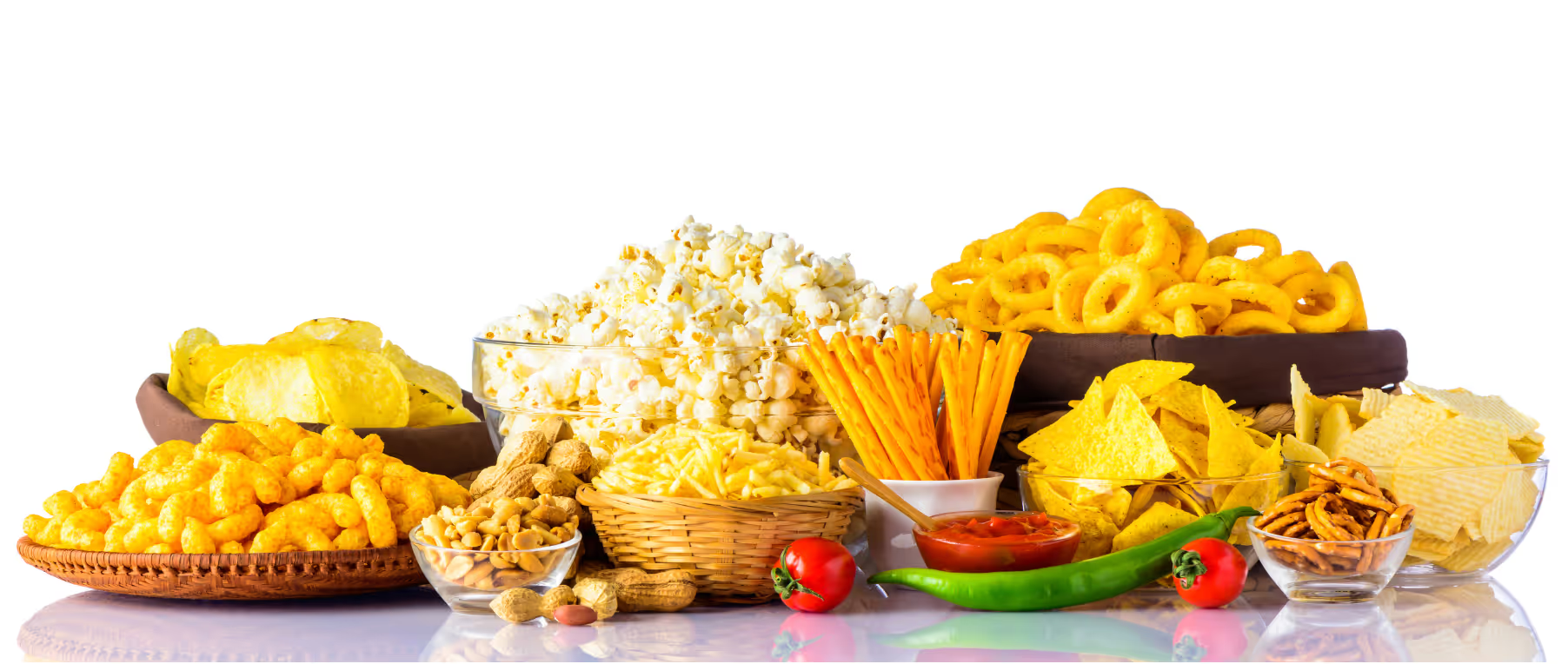You Are What You Eat: The Hidden Impact of Ultra-Processed Foods

In today’s fast-paced world, the adage “You Are What You Eat” has never been more relevant. Our diets are increasingly dominated by ultra-processed foods (UPFs), which are reshaping not only our plates but also our health. These foods, engineered for convenience and taste, are infiltrating everyday meals in ways many of us don’t even realize. Let’s explore how UPFs a fruits and vegetables is essential for long-term health.
The Health Toll of Ultra-Processed Foods
Ultra-processed foods undergo extensive industrial processing and are packed with additives like preservatives, artificial flavors, and high levels of sugar, salt, and unhealthy fats. Think soda, packaged snacks, instant noodles, and frozen ready meals. While they may be convenient and tasty, their impact on health is alarming:
- Increased Risk of Chronic Diseases: Diets high in UPFs have been linked to over 30 health conditions, including cardiovascular disease, type 2 diabetes, obesity, and even certain cancers.
- Mental Health Effects: Regular consumption of UPFs is associated with higher risks of anxiety, depression, and other mental health disorders.
- Premature Mortality: A study spanning nearly two decades found a 31% higher mortality rate among those consuming the most UPFs compared to those consuming the least.
These foods are designed to be hyper-palatable and calorie-dense while offering little to no nutritional value. Their lack of fiber and essential nutrients contributes to overeating and poor health outcomes.
How Ultra-Processed Foods Are Invading Our Diets
The prevalence of UPFs is staggering. In some countries, they account for over half of daily caloric intake. Food manufacturers have mastered the art of making these products irresistible through clever marketing strategies and formulations that maximize flavor while minimizing cost.
The food industry plays a major role in keeping these products in our diets. Here’s how they’re sneaking into our lives:
- Clever marketing tactics—such as using terms like "natural," "fortified," or "low-fat"—mislead consumers into thinking these options are healthy (Moodie et al., 2013). Bright packaging, celebrity endorsements, and strategic product placement further push these foods into our daily lives.
- Convenience Over Quality: Busy lifestyles make ready-to-eat meals and snacks appealing alternatives to home-cooked options.
- Hidden Ingredients: Many processed foods contain additives like modified starches or hydrogenated oils that aren’t immediately recognizable but contribute to poor health outcomes.
- Misleading Labels: Terms like “natural flavors” or “whole grain” can give the illusion of healthfulness while masking a product’s ultra-processed nature.
The Solution: Prioritize Whole Foods
To combat the negative effects of UPFs, it’s crucial to shift focus toward whole, minimally processed foods—especially fruits and vegetables. Here’s why they should take center stage in your diet:
- Nutrient Powerhouses: Fruits and vegetables provide essential vitamins, minerals, antioxidants, and fiber that support overall health.
- Disease Prevention: A diet rich in produce lowers the risk of heart disease, type 2diabetes, certain cancers, and digestive issues.
- Gut Health: Fiber from plant-based foods promotes a healthy gut microbiome, which plays a key role in immunity and digestion.
- Sustainable Energy: Unlike the quick energy spikes from sugary snacks, whole foods provide steady energy throughout the day.
Simple Steps to Eat Cleaner & Feel Better
Breaking free from ultra-processed foods doesn’t require a complete diet overhaul. Small, sustainable changes can make a big difference:
- Breaking free from ultra-processed foods doesn’t require a complete diet overhaul. Small, sustainable changes can make a big difference:
- Choose Local & Organic – Farmers markets and organic sections offer fresher, less chemically treated options. Prioritize organic for the "Dirty Dozen" (like strawberries and spinach) to reduce pesticide exposure (Barański et al., 2014).
- Fill Half Your Plate with Plants – More vegetables and fruits mean more fiber, vitamins, and antioxidants. Try berries in oatmeal, leafy greens in smoothies, or roasted veggies as side dishes.
- Cook Simple Meals at Home – Preparing whole-food meals (like grilled chicken with quinoa and steamed broccoli) avoids hidden additives found in takeout or frozen dinners.
- Cook Simple Meals at Home – Preparing whole-food meals (like grilled chicken with quinoa and steamed broccoli) avoids hidden additives found in takeout or frozen dinners.
Take Control of Your Health
Ultra-processed foods may be convenient, but their long-term damage isn’t worth the short-term ease. By choosing whole, minimally processed foods—and being aware of deceptive marketing—you can protect your health and feel your best.
Your body deserves real fuel. Start making mindful choices today — one meal at a time!
References
Barański, M., Średnicka-Tober, D., Volakakis, N., Seal, C., Sanderson, R., Stewart, G. B., ... &Leifert, C. (2014). Higher antioxidant and lower cadmium concentrations and lower incidenceof pesticide residues in organically grown crops: A systematic literature review and meta-analyses. British Journal of Nutrition, 112(5), 794–811.https://doi.org/10.1017/S0007114514001366
Hall, K. D., Ayuketah, A., Brychta, R., Cai, H., Cassimatis, T., Chen, K. Y., ... & Zhou, M. (2019).Ultra-processed diets cause excess calorie intake and weight gain: An inpatient randomizedcontrolled trial of ad libitum food intake. Cell Metabolism, 30(1), 67–77.https://doi.org/10.1016/j.cmet.2019.05.008
Lane, M. M., Gamage, E., Du, S., Ashtree, D. N., McGuinness, A. J., Gauci, S., ... & Marx, W. (2022).Ultra-processed food consumption and mental health: A systematic review and meta-analysis. Public Health Nutrition, 25(6), 1–14. https://doi.org/10.1017/S1368980022001586
Moodie, R., Stuckler, D., Monteiro, C., Sheron, N., Neal, B., Thamarangsi, T., ... & Lancet NCDAction Group. (2013). Profits and pandemics: Prevention of harmful eects of tobacco,alcohol, and ultra-processed food and drink industries. The Lancet, 381(9867), 670–679.https://doi.org/10.1016/S0140-6736(12)62089-3
Srour, B., Fezeu, L. K., Kesse-Guyot, E., Allès, B., Méjean, C., Andrianasolo, R. M., ... & Touvier, M.(2019). Ultra-processed food intake and risk of cardiovascular disease: Prospective cohortstudy (NutriNet-Santé). BMJ, 365, l1451. https://doi.org/10.1136/bmj.l1451
Other Posts
Stay Connected, Stay Inspired
Join our newsletter and receive curated insights, tips, and updates directly to your inbox.





